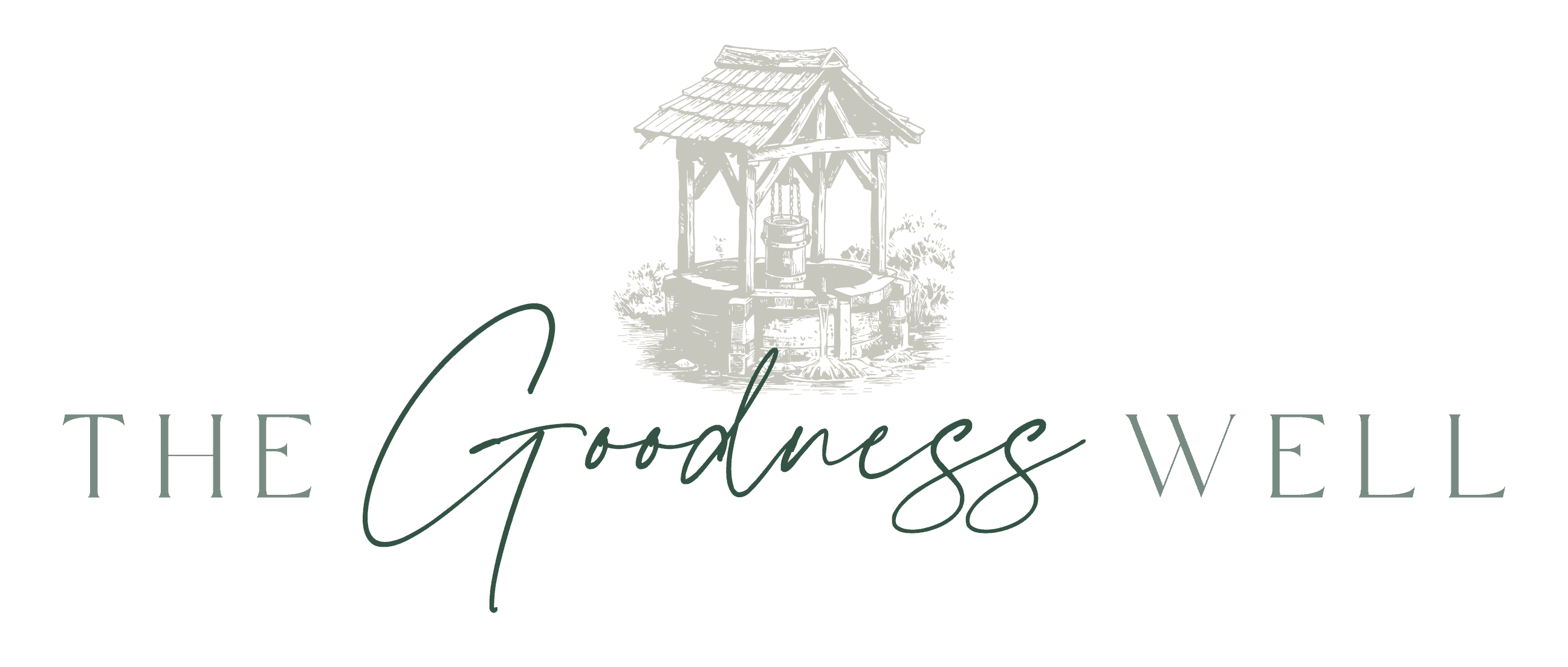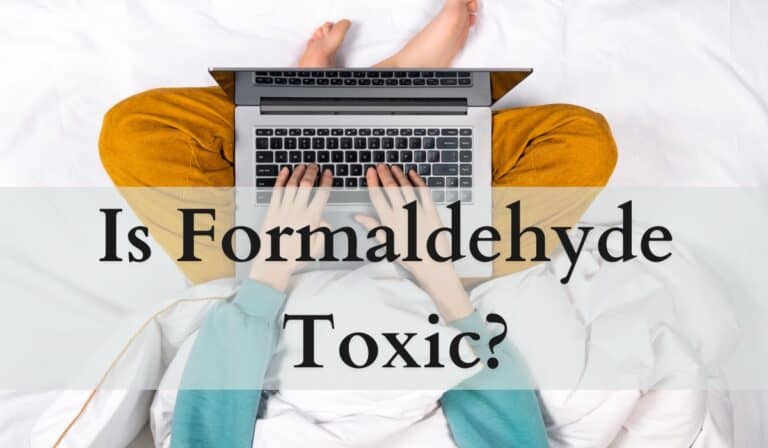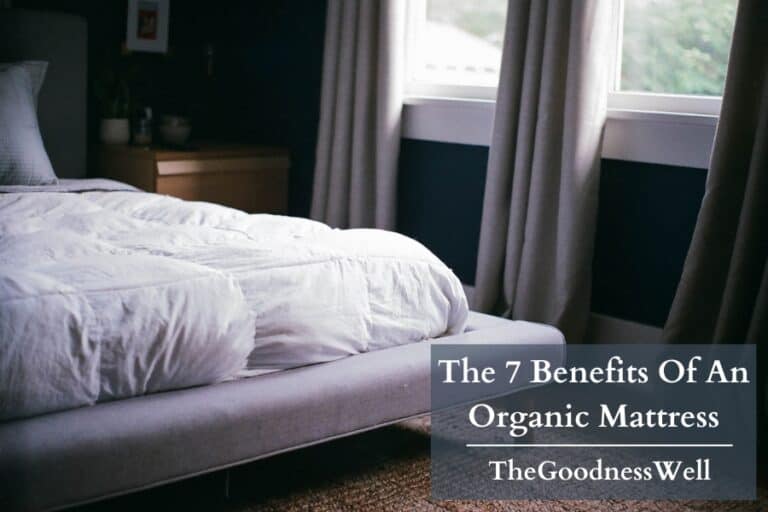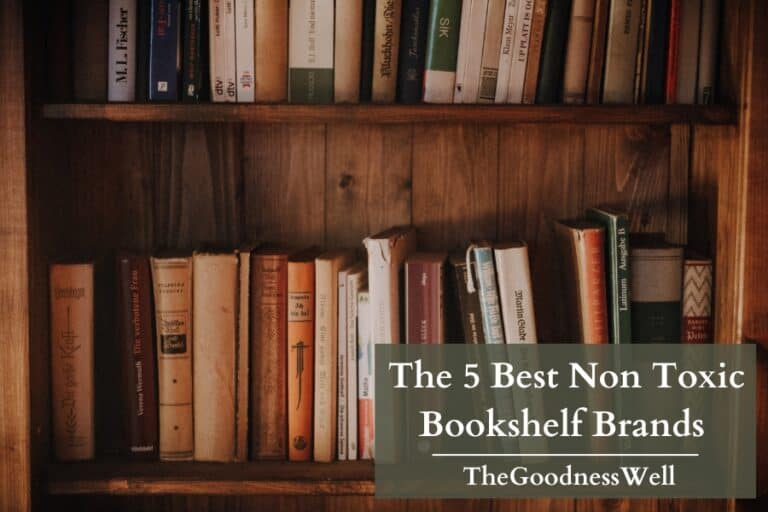Should I Worry About Prop 65 Warning? Here’s The Truth
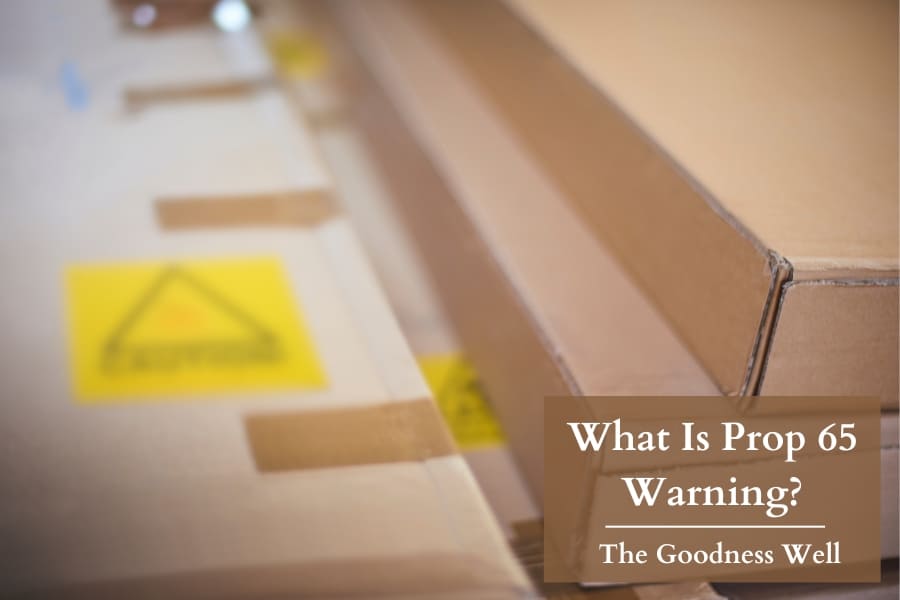
“Should I worry about Prop 65?” It’s a question many consumers ask when they come across this concerning label.
In short, no, you should not worry about Proposition 65, but you should be cautious. We’ll explain more below.
So what’s the real story behind this label?
In this article, we’ll talk all about Proposition 65 and provide guidelines on how best to approach products with this label.
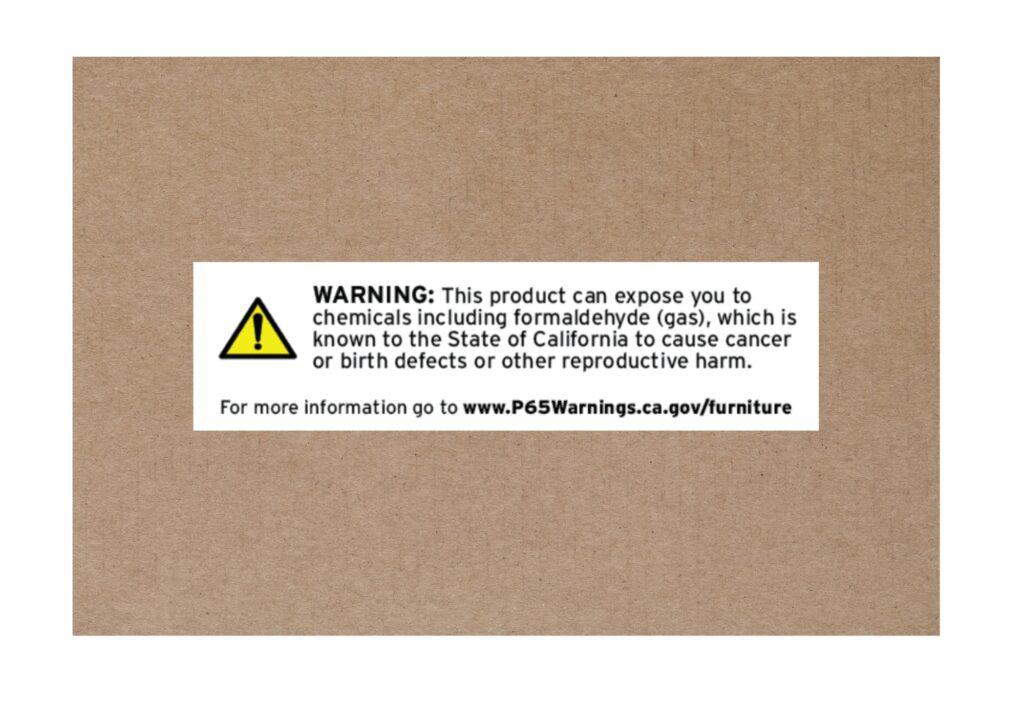
What is Proposition 65?
Proposition 65, otherwise known as the Safe Drinking Water and Toxic Enforcement Act of 1986 is a ballot initiative passed in November of 1986.
It protects water sources in California from being contaminated with chemicals known to cause reproductive harm, cancer, or birth defects.
It also requires businesses to inform Californians about significant exposure to such chemicals.
This act requires the state to keep an updated list of chemicals known to cause cancer or reproductive toxicity.
The list, now containing over 900 chemicals, involves ones present in commonly used products such as food, household cleaners, drugs, solvents, or dyes.
What Products Have Proposition 65 Warning?
Furniture
Many pieces of furniture, especially those imported or made with synthetic materials, carry this warning.
This is due to the chemicals used either in the manufacturing process, the materials themselves, or both.

Should I Buy Furniture With Prop 65 Warning?
Bluntly put, avoid them. There are great eco-friendly alternatives available that don’t come with potential health risks.
What is the warning on furniture for?
Furniture with a Prop 65 warning often contains harmful chemicals such as:
- Formaldehyde: This is frequently used in pressed-wood products, like particleboard, hardwood plywood paneling, and MDF. It can off-gas into the indoor environment, leading to potential health risks.
- Flame Retardants: Added to furniture foams and fabrics to resist burning. However, there’s growing concern about the health risks associated with their exposure.
- PFAS (Per- and polyfluoroalkyl substances): Often used in furniture to make them stain or water-resistant.
- Phthalates: Used to make plastics more flexible, they can be found in vinyl upholstery or even in some lacquers.
Recommendation:
For peace of mind and to ensure a healthier living environment, look for furniture made from natural materials like solid wood and organic upholstery.
Food
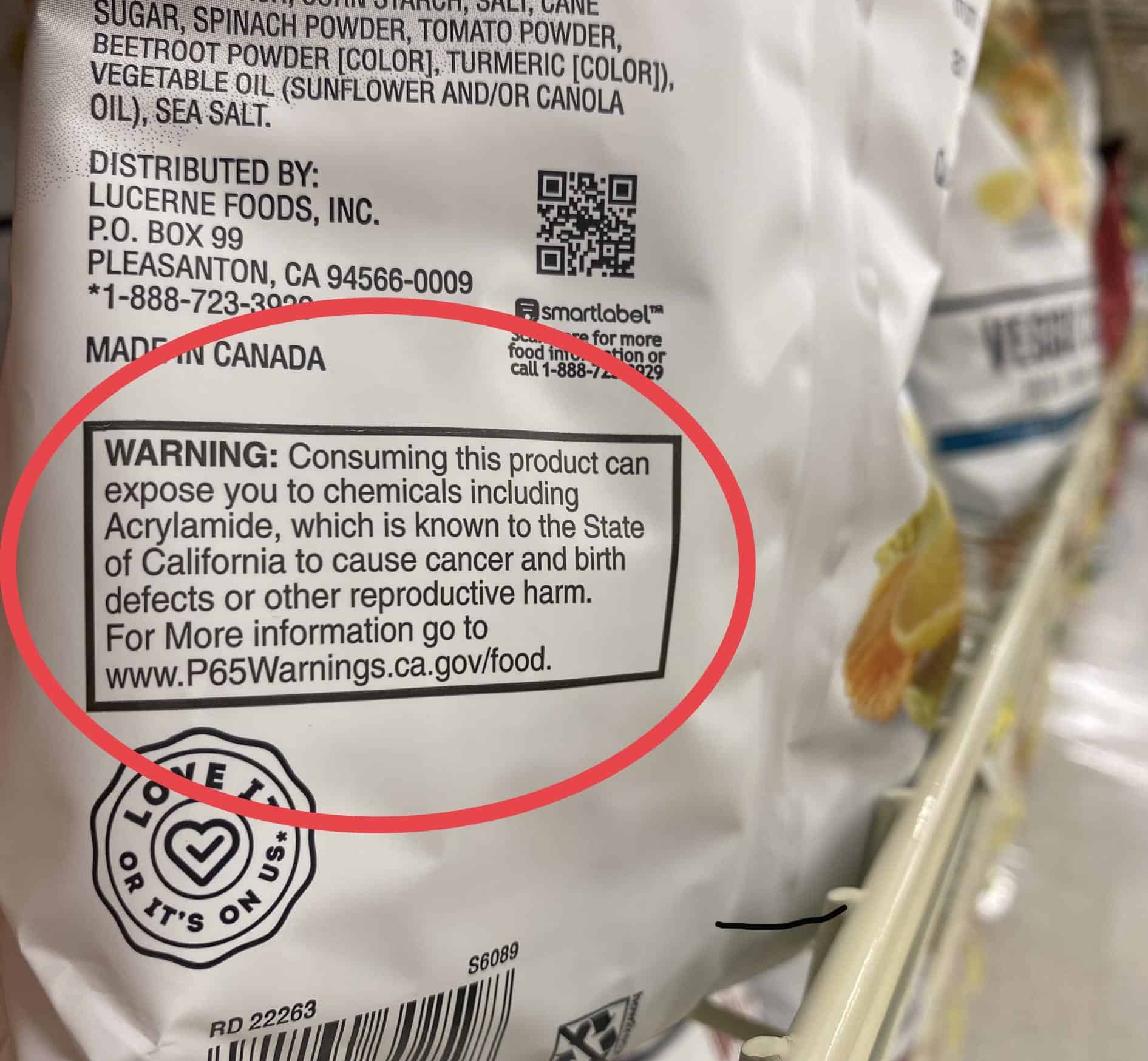
Seeing this warning label on food can be unsettling…
A common reason for this warning is Acrylamide.
The European Food Safety Authority (EFSA) has highlighted that Acrylamide in food may increase cancer risks.
Its exact amounts and associated risks are uncertain but the EFSA states that even minor exposure can potentially harm DNA.
Where is Acrylamide Found?
Mainly in fried or baked snacks like french fries and potato chips.
Our Advice:
Use the warning as another reason to choose a balanced diet filled with natural foods.
Fruits, vegetables, lean meats, fish, and high-fiber grains are the way to go, my friend. 🫑
Air fryers have a Prop 65 warning because of Acrylamide production during high-temperature cooking. To reduce its formation, use lower temperatures and aim for a golden yellow or lighter color when air frying.
Clothes
Why do clothes have Prop 65 warning?
You might wonder, what could possibly be harmful in clothes?
Well, several substances actually:
- PFAS: Found in water or stain-resistant clothing, PFAS are termed “forever chemicals.”
- Despite their widespread use since the 1950s, concerns about their environmental and health impacts have led to pushback and new laws.
- Lead: Surprisingly, some clothing items can contain lead.
- CBC Marketplace discovered alarming levels of lead in products from the retailer Shein. While these products were pulled, it was only after they were exposed so you can imagine what else is lurking inside these fabrics…
- Phthalates: Used in items like rainwear, shoes, and print designs on clothing, phthalates can be inhaled or absorbed through the skin.
- They’re linked to hormone disruption, reproductive issues, developmental risks in children, and cancer.
- Azo Dyes: Some azo dyes can release aromatic amines, some of which are known to be carcinogenic.
- These are banned in many countries for use in clothing that comes into direct contact with the skin.
Other harmful chemicals of concern in clothing include flame retardants and formaldehyde, often found in wrinkle-free attire.
Is It Safe To Wear Clothing With Prop 65 Warning?
It’s wise to steer clear of clothing carrying the Prop 65 warning. If uncertain, you can seek more details from the manufacturer.
Our recommendation?
Choose natural materials like organic cotton and wool, and sidestep items labeled as wrinkle or stain-resistant. 🧵🪡
Appliances

When you spot a Prop 65 warning on gas appliances, it’s primarily because of the chemicals they can emit during use. Common culprits include benzene, carbon monoxide, and formaldehyde.
The risk of exposure is usually high in poorly ventilated areas where these chemicals can build up.
So, if you have gas appliances in your home, it’s essential to ensure a steady flow of fresh air.
While replacing such appliances doesn’t always make financial sense, you can take several steps to mitigate risks:
- Installation & Maintenance: Always have gas appliances installed by professionals and maintain them regularly. A well-functioning appliance is less likely to produce excessive emissions.
- Ventilation Strategies:
- Windows and Doors: Ensure you open them periodically, especially during and after using the appliance, to allow fresh air in and pollutants out.
- Range Hoods: If you have a gas stove, use a range hood that vents to the outside. This directly removes any emissions from your cooking space.
- Burner Choice: If possible, use the back burners. They tend to be better ventilated than front burners, reducing the chance of chemical buildup in your breathing space
Other Products
The 4 products above might be some of the most worrisome places to see this warning, but you can find it on many other things and places:
- Alcoholic beverages
- Cannabis & THC products
- Food
- Vehicles
- Prescription Drugs
- Textile products
- Outdoor gear
- Petroleum products
- Wood dust
Here are places that have the warning too (usually only in California):
- Amusement parks
- Apartments
- Dental Offices
- Designated smoking areas
- Parking garages
- Hotels
- Restaurants
- Gas Stations
- Auto Shops
Should I Worry About Prop 65 Warning?
You should avoid items with a Proposition 65 warning. However, you should not worry about it as some things with the warning label can easily be avoided, but others not so much.
The Proposition 65 warning is like an overly cautious friend. It’s there to make you aware, but you don’t necessarily need to be on high alert every time you see it.
While it’s good to be informed, it’s also important not to let these warnings stress you out. Think of it as a heads-up, not a red alert
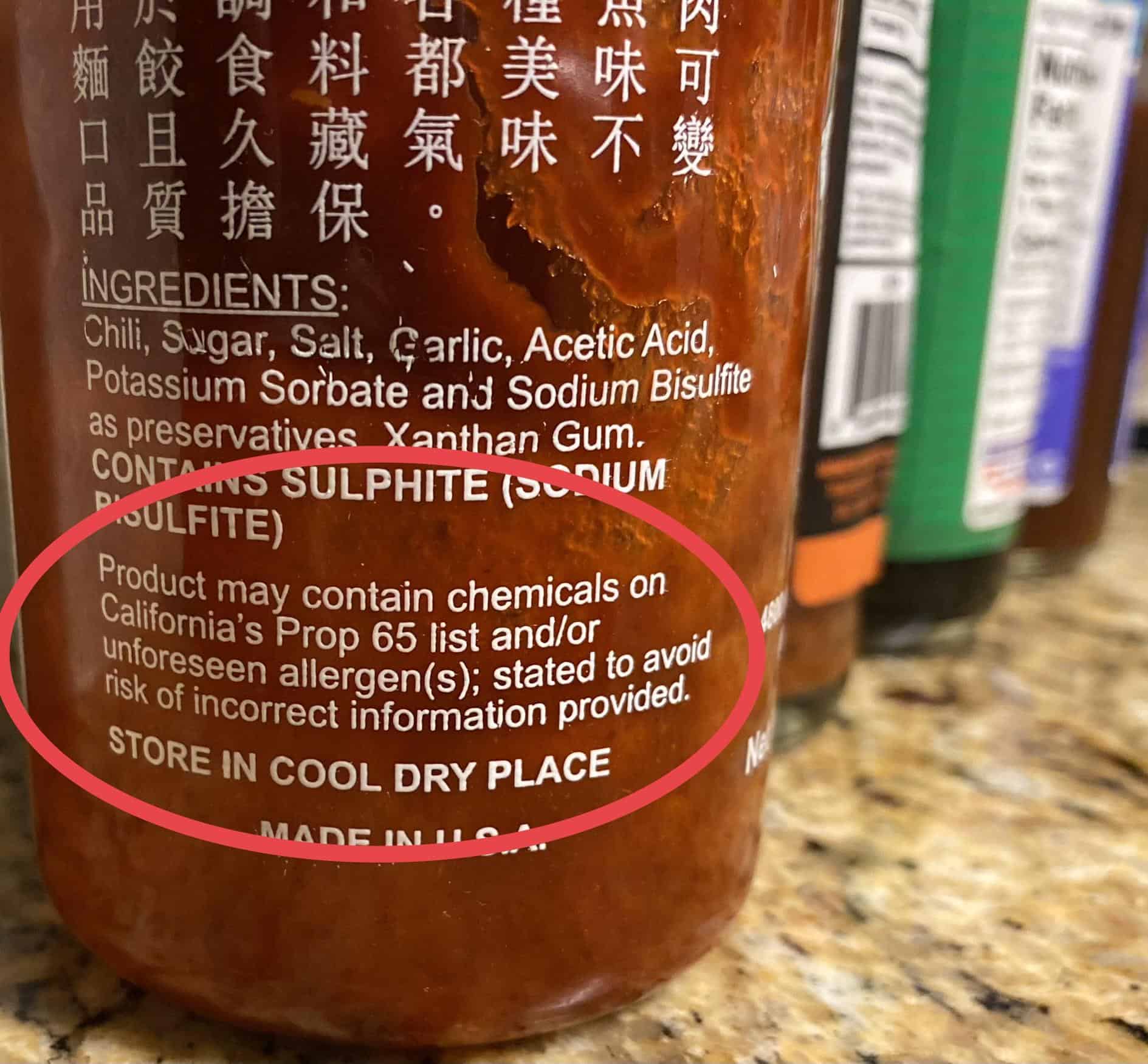
There are many cancer-causing substances and activities we come into contact with in our daily lives without a caution label.
The key is to limit exposure to those things. This warning provides us the opportunity to do so.
Are Prop 65 Products Unsafe?
Proposition 65 warnings vary in severity; they’re not always straightforward. While some see the law as overly cautious, it alerts us to potentially harmful substances.
However, many chemicals under Prop 65 pose risks only at very high levels. Still, certain chemicals, like lead, are best avoided regardless of quantity.
As of October 2022, the World Health Organization (WHO) still “identifies lead as one of 10 chemicals of major public health concern”.
It’s because of chemicals like these that I view Prop 65 as a positive thing. I’ll gladly tolerate an “annoying” sign if it means steering clear of harmful substances like lead.
However, this doesn’t mean the law is without its shortcomings.
What Should I Do When I See a Prop 65 Warning?
When you encounter this warning label:
- Don’t Panic: The warning doesn’t mean the product is unsafe. It’s a disclosure about the presence of specific chemicals.
- Research the Product: Determine which chemicals triggered the warning. Some chemicals might be of more concern than others.
- Evaluate Exposure: A product might contain a chemical, but if you’re not exposed to it for a prolonged period, the risk might be minimal.
- Contact the Manufacturer: They can provide more details on the chemicals present and the potential level of exposure.
- Seek Alternatives: If concerned, look for similar products without the warning.
- Stay Informed: Familiarize yourself with common Prop 65 chemicals and their risks.
- Reduce Exposure: If you choose to keep a product, ensure you use it in a way that minimizes potential exposure.
Remember, this warning aims to inform consumers. It’s up to each individual to decide the best course of action based on their preferences and health concerns.
Final Thoughts
So again, to answer the question, should I worry about Prop 65 warning? Ultimately, no. But use it to your advantage to avoid toxic chemicals where possible.
Prop 65 is a perfect example of how we can’t truly live completely non-toxic but can make informed decisions to live as low-toxic as possible.
frequently asked questions
No, Proposition 65 does not apply to other states but if they sell their product to California residents, they must use the label.
The Prop 65 warning level is the concentration of a chemical in a product that requires a warning label under California’s Proposition 65 if it exceeds a certain threshold set by the state.
The full list of all chemicals exceeds over 900 chemicals they can be found on the OEHHA (California Office of Environmental Health Hazards Assessment) official site.
